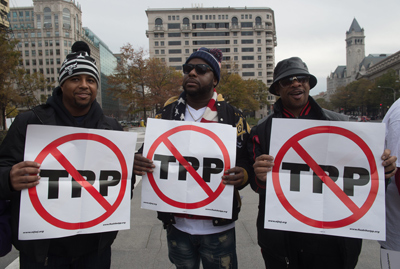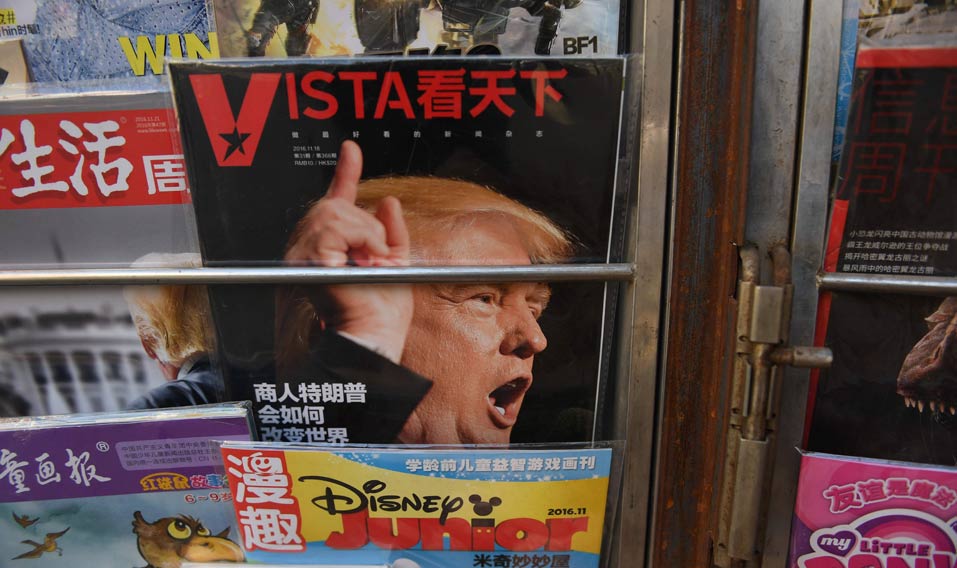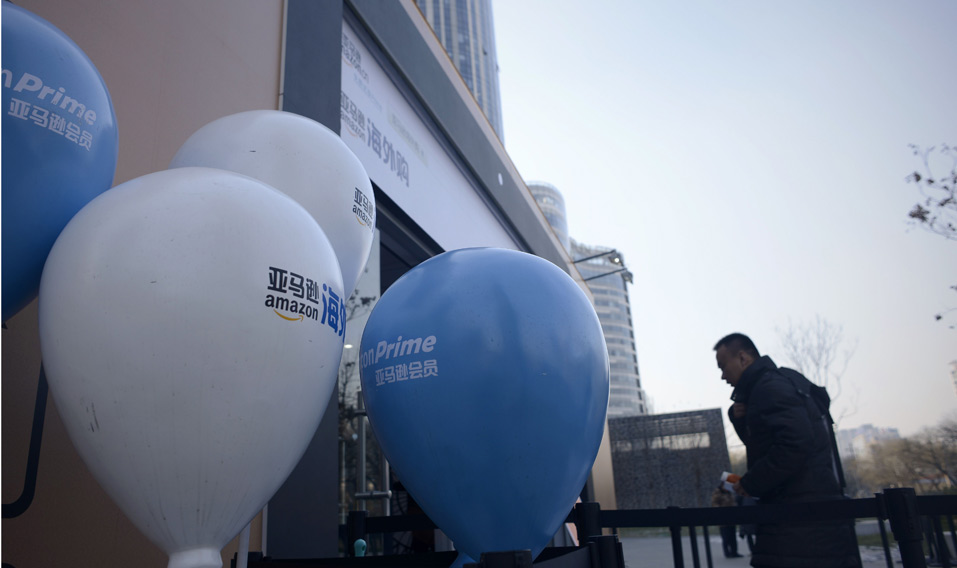American president-elect Donald Trump said he would withdraw from the Trans-Pacific Partnership (TPP) on the first day in office. In a video message that unveiled his agenda for the first 100 days, Trump said he wanted to pull out of a deal that was detrimental to the interests of the United States. Trump would be sworn in as the President on January 20.
The US-backed TPP deal, concluded in October 2015, is awaiting ratification by its 12 member nations. The trade deal covering 40 per cent of the world's economy requires to be independently ratified by a minimum of six countries—including the USA and Japan—contributing 85 per cent of the signatories' total GDP. The deal faces an uncertain future as US Congress takes up the agreement late next year.
Conceived as the world's largest free trade deal, TPP's intent was to counter growing Chinese might in Asia. The US, Japan, Mexico, Canada, Australia, New Zealand, Malaysia, Singapore, Vietnam, Brunei, Peru and Chile have agreed to eliminate inhibiting tariffs for nearly 18,000 items after a decade of hard negotiations. The deal isolates world's largest exporter and second largest economy China. Aiming to create a single market for nearly two-fifths of the world economy, the deal is seen as a model trade agreement for the future.
If the United States decides not to go ahead with the deal, it would cast a shadow over globalisation and threaten its position in Asian region. Backing out of the deal may cost the US dearly as China will move quickly to fill the void, creating major political and economic repercussions in the world.
Return to protectionism?
The fate of the TPP hangs in the balance as political leaders, trade unions and environmentalists in the US have raised their voices. They said the TPP deal treats corporations like sovereign nations and cedes too much power to them.
 Men holding signs as they demonstrate against the Trans-Pacific Partnership (TPP) trade agreement in Washington, DC on November 14, 2016. Photo: AFP
Men holding signs as they demonstrate against the Trans-Pacific Partnership (TPP) trade agreement in Washington, DC on November 14, 2016. Photo: AFP
Throughout the campaign trail, Trump attacked the agreement calling it a “horrible deal” for the United States. He described Japan and South Korea as “free riders” and demanded they contribute more for their security expenses. He said the US manufacturing had been shifted to Mexico and China, and called for imposing dumping duty on Chinese products sold in the US. Trump said he would negotiate for bilateral deals that would bring manufacturing industries and jobs back in the US.
Feeling left out of TPP, China is forging ahead with its own free trade deal, encompassing 10 Asean members and trading partners such as India, Japan, South Korea, Australia and New Zealand. Launched in November 2012, the Regional Comprehensive Economic Partnership (RCEP) has tentatively eliminated trade barriers on 80 per cent of the goods numbering nearly 9,000 items. Though much smaller than TPP with $9.5 trillion, it represents 29 per cent of the global trade. However, RCEP trade deal targets free trade of up to 92 per cent of the goods.
Trump's 100-day agenda has raised concern among the TPP member nations. The US allies in the Asia pacific are shocked by the call to quit the partnership as reopening the negotiation would be an unattainable task. Though they consider the presence of America as important for the success of the deal, some of the signatories may go ahead with the deal even without the US.
But the supporters of TPP deal emphase its strategic importance. They argue that the US could lose its leadership status in the Asia Pacific region if it backs out of TPP. The decision to pull out would not only affect American trade, but weaken the confidence of its regional allies.
Security concerns
TPP was brought up as part of 'Pivot Asia' policy of the United States. Obama said the deal would restore American power in Asia. The threat of US sinking the TPP pact has increased security concerns among the Asian countries. Asia Pacific nations are concerned that if the US quits the TPP, they would either be left with a powerless deal or be forced to lean towards China.
Though generally dependent on the US for security, Asean nations have increased trade relationship with China. Many of them want to reap benefits from China-initiated 'One Belt One Road' (OBOR) having huge investments in ports, rail lines, roads in the Asian region.
Another trade war could be in the offing. Trump had said he would brand China a “currency manipulator” and impose a 45 per cent tariff on Chinese imports. In the event of TPP demise, China will move promptly to play a larger political and economic role in the Asia Pacific region.
 A magazine featuring a cover story about US President-elect Donald Trump is seen at a news stand in Beijing on November 23, 2016. Photo: AFP
A magazine featuring a cover story about US President-elect Donald Trump is seen at a news stand in Beijing on November 23, 2016. Photo: AFP





